Staying safe when you’re out and about
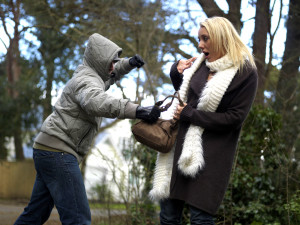 If you often walk home in the dark, get a personal attack alarm from a DIY store. Carry it in your hand so you can use it immediately to scare off an attacker. Make sure it is designed to continue sounding if it’s dropped or falls to the ground.
If you often walk home in the dark, get a personal attack alarm from a DIY store. Carry it in your hand so you can use it immediately to scare off an attacker. Make sure it is designed to continue sounding if it’s dropped or falls to the ground.- Carry your bag close to you with the clasp facing inwards.
- Carry your house keys in your pocket.
- If someone grabs your bag, let it go. If you hang on, you could get hurt. Remember your safety is more important than your property.
- If you think someone is following you, check by crossing the street – more than once if necessary – to see if they follow. If you are still worried, get to the nearest place where there are other people – a pub or anywhere with a lot of lights on – and call the police.
- If you regularly go jogging or cycling, try to vary your route and time. Stick to well-lit roads with pavements. On commons and parklands, keep to main paths and open spaces where you can see and be seen by other people – avoid wooded areas. If you wear a personal stereo, remember you can’t hear traffic, or somebody approaching behind you.
- Avoid taking late night short-cuts through dark alleys or parks. Walk facing the traffic so a car cannot pull up behind you unnoticed.
- If a car stops and you are threatened, shout and set off your personal attack alarm if you have one. Get away as quickly as you can. This will gain you vital seconds and make it more difficult for the car driver to follow.
- If you can, make a mental note of the number and description of the car. Write down details as soon as possible afterwards.
- Don’t hitch-hike or take lifts from strangers.
- Only use licensed taxis. Ensure the driver is wearing their driver’s badge and make sure that the vehicle displays a white plate at the rear of the vehicle.
- When booking a private hire vehicle pre book and agree the fare when booking. Make sure you’re entering the correct vehicle and confirm the booking with the driver who should be wearing a badge. If you have any doubt that the taxi is legitimate don’t get into the vehicle.
- Join Thames Valley Alert
For more advice on personal safety see the Suzy Lamplugh Trust website.
Reporting Crimes and Incidents
You should call 999 in an emergency where;
- There is a risk of serious injury
- There is a risk of serious damage to property
- You suspect a crime is in progress
- It is a serious incident which needs immediate police attention
Non-emergency
If it is a non-emergency
- call the police on 101
- call into any police station
Sexual Violence
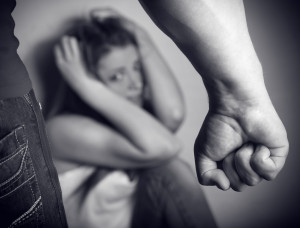
It is important to remind yourself that you are not to blame. Nothing that you have done can make a person rape or sexually assault you. You are not responsible for someone else’s actions. There is help and support locally which is listed below.
Hate Crime
The Gov.uk definition is “Crimes committed against someone because of their disability, gender-identity, race, religion or belief, or sexual orientation are hate crimes and should be reported to the police”. A hate crime or incident is any act that is motivated by a hostility or prejudice towards a specific part of someone’s identity. In the case of the LGBT community, this means any act of hostility towards a person’s sexuality or gender identity. It does not matter whether the individual in fact identifies themselves as within any of these groups – it can simply become hate-related if it is based upon a person’s perceived sexuality or gender identity.
Hate crimes can include:
- threatening behaviour
- assault
- robbery
- damage to property
- inciting others to commit hate crimes
- harassment
Types of incidents:
Verbal abuse – any kind of offensive or derogatory language; e.g. name calling in the street because you are holding hands with your same sex partner, or coming out of a LGBT venue
Harassment – abusive phone calls, hate mail, online bullying
Physical abuse – any act of violence or threat of violence can constitute a hate-motivated assault (i.e. kicking, spitting, punching, slapping)
Criminal damage – this could include vandalism or graffiti to your home or vehicle
If the incident constitutes a criminal offence it becomes a ‘hate crime’. Hate crimes can carry tougher sentences at court.
The police take these kinds of reports very seriously, however they are still massively under-reported. Even if the incident doesn’t constitute a crime, there are still things the police or local agencies can do to help, whether it be to support you or safeguard others from similar incidents. The police are keen to understand hate crime in the local area in order to better deal with it.
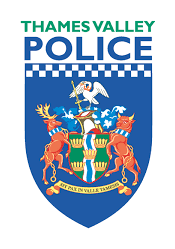 How to report:
How to report:
If you think you have been a victim or you have any information about a hate crime or incident, make sure you report it. You can do so in a number of ways:
Via the police:
Online – via the Thames Valley Police website
Phone – always call 999 in an emergency if there is a crime in progress or there is serious risk of immediate harm to life or property.
Alternatively, call 101 to speak with Thames Valley Police.
If you wish, you can request to speak with a LAGLO (Lesbian and Gay Liaison Officer). A LAGLO is a police officer or member of police staff who has specialist training in, and a specific understanding of, lesbian, gay, bisexual and transgender issues. This expert knowledge and understanding offers a critical additional resource not only to Thames Valley Police but also lesbian, gay, bisexual and transgender (LGB&T) communities and individuals.
Embracing and considering all aspects of policing, the role is designed to assist the maximization of service delivery opportunities to improve confidence, trust and communication between Thames Valley Police and LGB&T communities and individuals.
There is already a demand for LAGLO assistance across the Thames Valley Police area. So, if you would like to get in contact with your local LAGLO, please call Thames Valley Police on 101 and ask to be connected.
Third-party reporting options:
If you don’t want to report it directly to the police, there are options to report it via third-parties such as :
Services, Organisations & Contacts

National LGBT+ Domestic Abuse Helpline
The National LGBT+ Domestic abuse helpline is part of Galop – an LGBT+ anti-violence charity.
If you’ve experienced hate crime, sexual violence or domestic abuse, we’re here for you. We also support lesbian, gay, bi, trans and queer people who have had problems with the police or have questions about the criminal justice system.
 National LGBT+ Domestic Abuse Helpline: 0800 999 5428
National LGBT+ Domestic Abuse Helpline: 0800 999 5428
 10.00 -17.00 Monday, Tuesdays and Fridays / Wednesday and Thursdays 10.00-20.00
10.00 -17.00 Monday, Tuesdays and Fridays / Wednesday and Thursdays 10.00-20.00

ADT Healthcare
ADT Healthcare offers a free hotline dedicated to helping women suffering from drug, alcohol and mental health issues. ADT Healthcare was founded in 2011 by people who overcame drug and alcohol addiction themselves.
 https://www.adt-healthcare.com
https://www.adt-healthcare.com
 Contact: Oliver
Contact: Oliver
 24/7
24/7
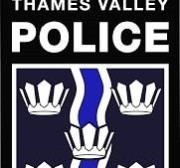
Reporting Crimes and Incidents
You should call 999 in an emergency where;
– There is a risk of serious injury
– There is a risk of serious damage to property
– You suspect a crime is in progress
– It is a serious incident which needs immediate police attention
If it is a non-emergency
– call the police on 101
– call into any police station
Lesbian and Gay Liaison Officers
LAGLOs are available specifically to help LGBT victims in Buckinghamshire. Call 101 and request a “LAGLO”.
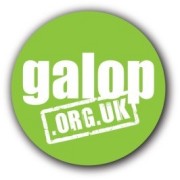
Galop
Preventing and challenging homophobic and transphobic crime. Also hosts the LGBT domestic abuse support line

Crimestoppers
An independent charity helping law enforcement to locate criminals and help solve crimes.
 https://www.facebook.com/crimestoppers
https://www.facebook.com/crimestoppers
 https://www.twitter.com/CrimestoppersUK
https://www.twitter.com/CrimestoppersUK

Thames Valley Alert
Thames Valley Alert provides free information about crimes, crime reduction advice, appeals for witnesses, police information and meetings related to the neighbourhood in which you live or work. You can receive alerts by email, text or voice message.

Solace
Solace is a place where you can come and talk in total confidence about the experience and receive much needed care and support from understanding professionals.
 Slough: Upton Hospital, Church Street, Slough, SL1 2BJ
Slough: Upton Hospital, Church Street, Slough, SL1 2BJ
 Bletchley: Sherwood Drive, Bletchley, Milton Keynes, MK3 6TP
Bletchley: Sherwood Drive, Bletchley, Milton Keynes, MK3 6TP
Independent Sexual Violence Advisors (ISVA)
The ISVAs are there to make sure that victims of sexual abuse have the best possible practical advice on what counselling and other services are available to them, on the process involved in reporting a crime and on taking their case through the criminal justice process (should they choose to).
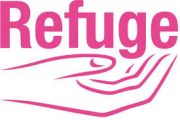
Refuge
The Thames Valley Independent Sexual Violence Advisory service supports anyone living in Thames Valley who has experienced, or is at risk of experiencing, sexual assault or rape.

Sexual Assault & Abuse Support Service Buckinghamshire and Milton Keynes
A local charity serving Buckinghamshire and Milton Keynes. We support all individuals whose lives have been affected by sexual assault and abuse.
SAASSBMK provides specialist counselling, information, advice and guidance including a helpline, ISVA and Advocacy support.
SAASSBMK also provides free and confidential support for male survivors of domestic abuse in Buckinghamshire.
We Listen – We Believe – We Support
 PO Box 1058, Aylesbury, Buckinghamshire, HP20 9JZ
PO Box 1058, Aylesbury, Buckinghamshire, HP20 9JZ
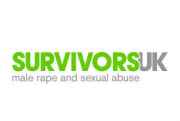
Survivors UK
Provides information, support and counselling for men who have been raped or sexually abused.

Victims First
Reporting of Hate Crime. Available across the Thames Valley
 https://www.victims-first.org.uk/search-results/?search=hate+crime
https://www.victims-first.org.uk/search-results/?search=hate+crime
IDAHOT
International Day Against Homophobia, Transphobia and Biphobia
 http://dayagainsthomophobia.org/
http://dayagainsthomophobia.org/

 help@galop.org.uk>
help@galop.org.uk> https://www.youtube.com/user/CrimestoppersUK
https://www.youtube.com/user/CrimestoppersUK https://www.linkedin.com/company/crimestoppers-trust
https://www.linkedin.com/company/crimestoppers-trust